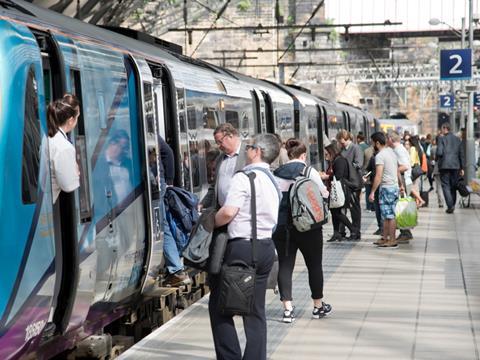
UK: Replacing ‘a quarter-century of fragmentation’ with ‘single, accountable national leadership’ is at the core of the government’s Williams-Shapps Plan for reform of the railways in Great Britain, with passenger services to be provided by private sector concessionaires under contract to a new public body Great British Railways.

The rail reform white paper published on May 20 follows the Williams Review of the structure of the industry which the government commissioned in September 2018.
The government said the plan ‘re-emphasises our commitment to growing, not shrinking, the rail network, with tens of billions of pounds invested in more electrification, new and reopened lines and a rail revolution’.
Great British Railways
Under the plan, the new public body Great British Railways will own the infrastructure, plan the network, set ‘most’ fares and timetables and collect fare revenue.
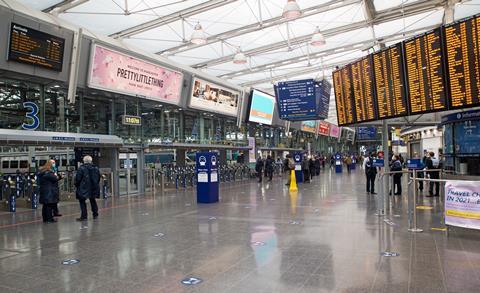
GBR will absorb the current infrastructure manager Network Rail to provide ‘single, unified and accountable leadership’, using ‘a single, familiar brand — updating the famous National Rail double arrow’.
The Department for Transport said GBR would ‘drive significant efficiencies in the railways’ inflated costs, reducing complexity and duplication, increasing flexibility, changing working practices and making it easier and cheaper to invest.’
The reforms envisage that the government would set the overall strategic direction for the industry, including infrastructure investment and fares policy, through a 30-year plan that is intended to ensure money is targeted and used efficiently.
Private sector operators
DfT said the Williams-Shapps plan was aimed at simplification but not renationalisation, which the government ‘continues to believe failed the railways’. It envisaged that there would be a ‘substantial, and often greater’ role for the private sector.
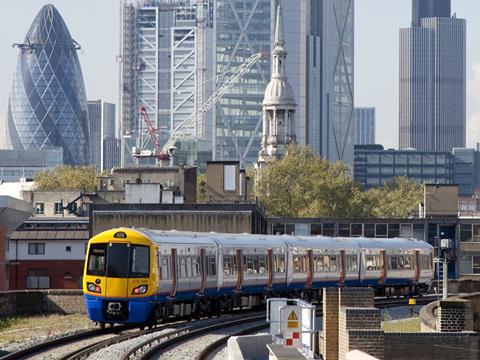
GBR will award Passenger Service Contracts for the operation of most train services in England to the timetables and fares it specifies, using a concession model which DfT said would be similar to that used by Transport for London for London Overground inner-suburban and Docklands Light Railway metro services. Devolved arrangements in Scotland and Wales will remain in place.
DfT said the Passenger Service Contracts would help to build a more financially stable industry and remove barriers to new market entrants by no longer basing franchising competitions on ‘complex and uncertain revenue forecasts’. In recent years private sector owning groups have expressed increasing concern about the balance of risk and reward under the current franchising model.
The Passenger Service Contracts would be based on providing a ‘competitive and customer-focused offer, delivering greater value-for-money for the taxpayer’, according to DfT. There would be ‘strong incentives’ for operators to run high quality services and increase passenger numbers.
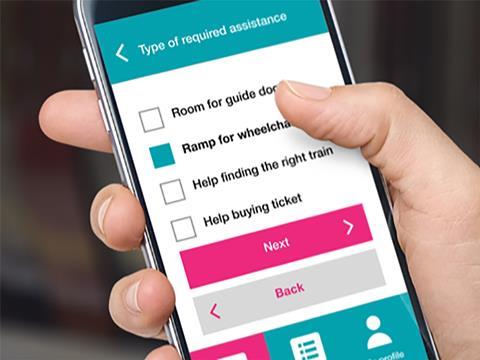
The government envisages that switching to a concession model will lead to greater competition, seeing ‘huge new opportunities’ for the private sector to innovate in areas such as ticket retailing and journey planning data. It believes that the new model would enable community rail partnerships to bid for the contracts to operate their local branch lines.
The Passenger Service Contracts would not be one-size-fits-all, with operators on some routes, particularly long-distance, having more commercial freedom. However, ‘affordable walk-on fares and season ticket prices will be protected.’
As a bridge to reform, the current operating agreements with operators which were put in place to ensure continuity of service during the coronavirus crisis are to be replaced by two-year National Rail Contracts which are to be finalised this year.
Ticketing changes
GBR is expected to work with local communities to plan the provision of services, with local leaders being given greater control over ticketing, timetables and stations.
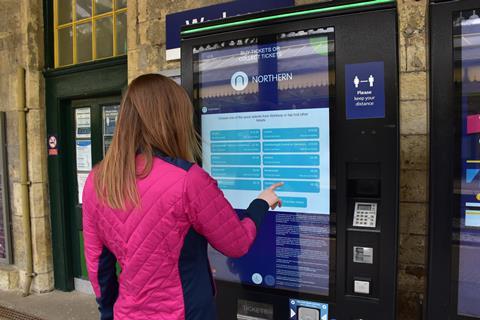
Plans to ‘simplify the current mass of confusing tickets’ include the introduction of flexible season tickets, and a ‘significant’ roll-out of Pay-As-You-Go, contactless and smartphone ticketing.
A GBR website and app will sell tickets, and there will be a single compensation system for operators in England to provide a simple way for passengers to access information and apply for refunds.
Freight opportunities
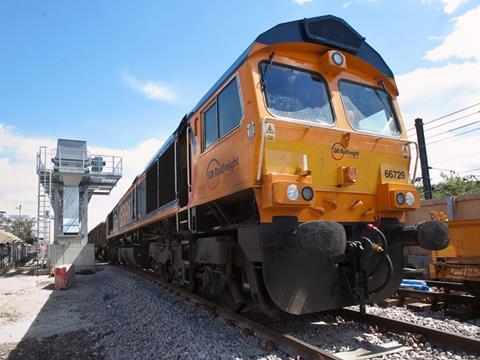
DfT said there would be new opportunities for freight, with national co-ordination offering greater flexibility and responsiveness.
‘Modern’ contracts would ‘ensure the sector continues to keep goods moving’ to deliver economic and environmental benefits.
Environmental plan
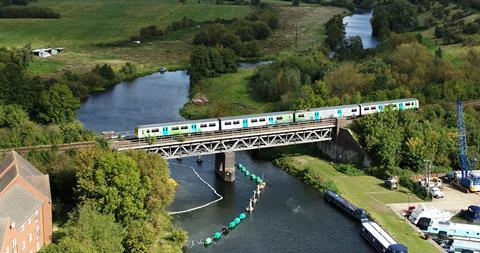
A ‘comprehensive and costed’ environmental strategy will be delivered by 2022 to help achieve net zero carbon emissions, along with a national accessibility audit.
The 30-year plan to be published next year will set out key investment and strategic decisions to support economic growth, levelling up and the environment.
‘Complicated and broken system ends today’
‘Our railways were born and built to serve this country, to forge stronger connections between our communities and provide people with an affordable, reliable and rapid service’, said Secretary of State for Transport Grant Shapps. ‘Years of fragmentation, confusion and over-complication has seen that vision fade, and passengers failed. That complicated and broken system ends today.

‘The pandemic has seen the government take unprecedented steps to protect services and jobs. It’s now time to kick-start reforms that give the railways solid and stable foundations for the future, unleashing the competitive, innovative and expert abilities of the private sector, and ensuring passengers come first.
‘Great British Railways marks a new era in the history of our railways. It will become a single familiar brand with a bold new vision for passengers – of punctual services, simpler tickets and a modern and green railway that meets the needs of the nation.’
| 10 planned outcomes of rail reform |
|---|
| 1. Modern passenger experience: passengers must receive high-quality, consistent services. More accessible, reliable, well connected journeys and a new customer offers at stations and on trains; |
| 2. Retail revolution: simpler, modern ways of paying for travel and straightforward compensation. Clear prices, digital ticketing and flexibility will underpin this transformation. |
| 3. New ways of working with the private sector: Passenger Service Contracts will replace franchising. New opportunities for innovators, suppliers (including small and local partners) and funders will be created through streamlined contracts and more contestability; |
| 4. Economic recovery and financially sustainable railways: The railways are a public service, paid for by taxpayers and passengers, and bringing together responsibility for cost and revenue in GBR will ensure the railways become more financially sustainable; |
| 5. Greater control for local people and places: railways will be more responsive to the needs of local communities. Empowered, locally-led teams will support improvements and be accountable to the people and places they serve; |
| 6. Cleaner, greener railways: rail will ‘spearhead the nation’s ambition’ to become a world leader in green transport, with decarbonisation, greater biodiversity and improvements in air quality; |
| 7. New opportunities for freight: national co-ordination offering greater flexibility and responsiveness will create new opportunities for rail freight. Modern contracts will ensure the sector continues to keep goods moving and delivering vital economic and environmental benefits. |
| 8. Increased speed of delivery and efficient enhancements: restoring lost rail links and accelerating the delivery of critical upgrades to the network will support new economic growth and connectivity; |
| 9. Skilled, innovative workforce: a culture of collaboration, strengthening leadership and enhancing the skills across the sector are vital to delivering a better service for passengers. ‘High-value and fulfilling’ opportunities for staff will ensure they can best serve the needs of customers. |
| 10. Simpler industry structure: Great British Railways will provide a ‘guiding mind’ organised around regional railways, with people, culture and incentives focus on serving all customers. There will be clear accountability, better decision-making and a single financial system, with a 30-year strategy enable the sector to ‘transform and modernise efficiently’. |



